First of all I think the answers above are correct. I was able to achieve what I wanted to do by following recommendations from them.
But I have also broke by production keycloak integration with auth2-proxy which lead to some outage for internal users :)
So, I took time to investigate a bit and came up with creating new client scope and adding custom client role / realm role / group mappers to it.
It works, and also you don't break your working keycloak integrations with other services ;)
Here is all my terraform code which you can you to reproduce what I did:
variable "realm_name" {
type = string
description = "Name of the realm to create"
default = "master"
}
variable "keycloack_user" {
type = string
description = "Keycloak admin user"
default = "admin"
}
variable "keycloack_password" {
type = string
description = "Keycloak admin password"
default = "admin"
}
variable "keycloak_url" {
type = string
description = "Keycloak url"
default = "http://localhost:8090"
}
variable "oauth_fqdn" {
type = string
description = "FQDN of the oauth server used for valid redirects"
default = "http://localhost:3000/*"
}
terraform {
required_version = ">= 1.0.0"
required_providers {
keycloak = {
source = "mrparkers/keycloak"
version = ">= 3.7.0"
}
}
}
provider "keycloak" {
client_id = "admin-cli"
username = var.keycloack_user
password = var.keycloack_password
url = var.keycloak_url
realm = var.realm_name
# base_path = "/auth"
}
data "keycloak_realm" "realm" {
realm = var.realm_name
}
resource "keycloak_openid_client" "client" {
realm_id = data.keycloak_realm.realm.id
client_id = "my-client"
name = "my-client"
enabled = true
access_type = "CONFIDENTIAL"
valid_redirect_uris = [
var.oauth_fqdn
]
login_theme = "keycloak"
standard_flow_enabled = true
}
output "keycloak_client_id" {
value = keycloak_openid_client.client.client_id
}
output "keycloak_client_secret" {
value = keycloak_openid_client.client.client_secret
sensitive = true
}
// creating custom scope
resource "keycloak_openid_client_scope" "this" {
realm_id = data.keycloak_realm.realm.id
name = "group_and_roles"
description = "When requested, this scope will map a user's group memberships and all roles to a claim"
include_in_token_scope = true
}
// creating custom group mapper
resource "keycloak_generic_protocol_mapper" "groups" {
realm_id = data.keycloak_realm.realm.id
client_scope_id = keycloak_openid_client_scope.this.id
name = "groups mapper"
protocol = "openid-connect"
protocol_mapper = "oidc-group-membership-mapper"
config = {
"full.path" : "true",
"id.token.claim" : "true",
"access.token.claim" : "true",
"claim.name" : "groups",
"userinfo.token.claim" : "true"
}
}
// creating custom role mapper for realm level roles
resource "keycloak_generic_protocol_mapper" "realm_roles" {
realm_id = data.keycloak_realm.realm.id
client_scope_id = keycloak_openid_client_scope.this.id
name = "realm roles mapper"
protocol = "openid-connect"
protocol_mapper = "oidc-usermodel-realm-role-mapper"
config = {
"multivalued" : "true",
"userinfo.token.claim" : "true",
"id.token.claim" : "true",
"access.token.claim" : "true",
"claim.name" : "realm_roles",
"jsonType.label" : "String"
}
}
// creating custom role mapper for client level roles
resource "keycloak_generic_protocol_mapper" "client_roles" {
realm_id = data.keycloak_realm.realm.id
client_scope_id = keycloak_openid_client_scope.this.id
name = "client roles mapper"
protocol = "openid-connect"
protocol_mapper = "oidc-usermodel-client-role-mapper"
config = {
"multivalued" : "true",
"userinfo.token.claim" : "true",
"id.token.claim" : "true",
"access.token.claim" : "true",
"claim.name" : "client_roles",
"jsonType.label" : "String"
}
}
// adding custom scope to client as optional
resource "keycloak_openid_client_optional_scopes" "client_optional_scopes" {
realm_id = data.keycloak_realm.realm.id
client_id = keycloak_openid_client.client.id
optional_scopes = [
"address",
"phone",
"offline_access",
"microprofile-jwt",
keycloak_openid_client_scope.this.name
]
}
And later I setup my application level auth config as follows:
AUTH_ISSUER_URL=http://localhost:8090/realms/master
AUTH_CLIENT_ID=my-client
AUTH_CLIENT_SECRET=client-secret-get-it-from-output
AUTH_SCOPES="profile,email,openid,offline_access,group_and_roles"




